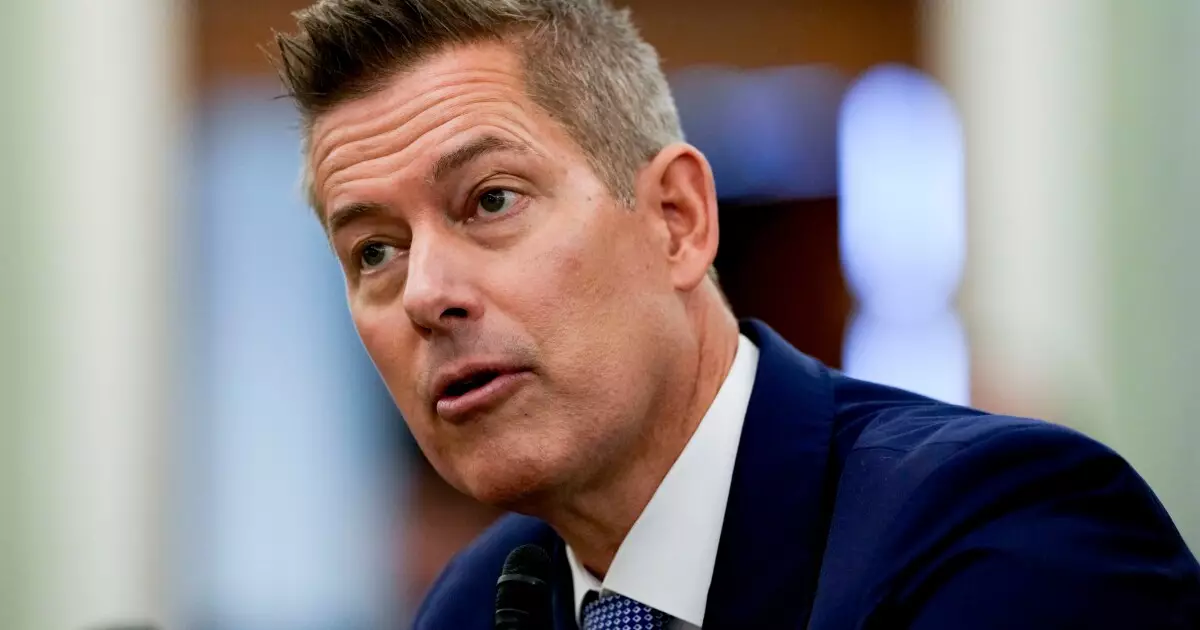The recent actions by the U.S. Department of Transportation (DOT) signal a significant departure from the environmental agenda that has dominated the discourse in recent years. Under the aegis of President Trump, the DOT is dialing back on funding that mandates environmental assessments and social initiatives, redirecting focus back toward essential infrastructure progress. It is about time that we abandon the previous administration’s overreaching federal mandates that veered into the territory of pushing ideological agendas. Infrastructure should be about practicality and efficacy, not ideological purity.
Transport Secretary Sean P. Duffy decisively stated that the agency intends to “get back to basics,” prioritizing the construction of essential projects that ensure safe transportation of goods and people. This is not merely an administrative maneuver; it reflects the sense of urgency that has resonated through the industry and among the public. With the Highway Trust Fund on the brink of insolvency, prioritizing straightforward and accessible funding strategies becomes not just an option, but a necessity.
The Rejection of Bureaucratic Stringency
The revocation of the memoranda introduced during the Biden Administration aimed at controlling greenhouse gas emissions and ensuring social equity in federal-aid programs deserves a closer examination. By dismantling these guidelines, the DOT is releasing the chokehold that has been constraining state departments of transportation. This return to state-controlled funding aligns with the founding principles of federalism in the highway system. The idea here is simple: empower those closest to the problems, namely the states, to manage their own infrastructure without excessive federal interference.
Alex Etchen of the Associated General Contractors of America echoed this sentiment, emphasizing that the rescission of these memos alleviates uncertainties that hampered construction projects. It is crucial for lawmakers and state officials to work together without the burden of bureaucratic entanglement—devoid of external expectations that often lead to inefficiencies.
Rethinking Fuel Taxes in a Modern Landscape
However, amid this renewed focus on effective funding structures lies a pressing issue: the Highway Trust Fund’s dependence on fuel taxes, which have remained stagnant since 1993. As the nation gears up for a transportation evolution, including electric vehicles that do not contribute to traditional fuel taxes, lawmakers need to adapt to a changing financial landscape. As noted by Senator Shelley Moore Capito, the emphasis must transition from discretionary grants riddled with complexities to reliable formula funding.
This is not just fiscal pragmatism; it is an acknowledgement that the future requires flexibility and innovation. Entering a new phase of transportation infrastructure requires creative funding solutions and understanding the economic landscape, particularly in mitigating the competitive disadvantage presented by non-contributing electric vehicles. If we are to rebuild our transportation framework, it is imperative that we rethink and recalibrate fiscal policies and funding sources accordingly.
Addressing Urgent Safety Concerns
Beyond merely funding infrastructure projects, there exists an urgent need to address safety within the transportation system. The rising incidence of accidents and dangerous occurrences—tarmac fires and crashes included—demands an immediate focus. Secretary Duffy’s proactive investigation into hiring practices at the FAA underlines a serious concern: prioritizing diversity and inclusion should not compromise safety and operational effectiveness. If agencies responsible for managing air traffic and safety are bogged down by ideologically driven initiatives rather than operational excellence, it places lives in jeopardy.
Safety cannot be an afterthought in the pursuit of crafting a modern transportation system. With the resurgence of infrastructure spending, we must blend accountability with progress—ensuring that every dollar spent translates to tangible safety outcomes without the unnecessary complications of green mandates that prioritize ideology over practicality.
The liberation of infrastructure funding from the heavy hand of environmental and social mandates is a bold shift that aligns more closely with what many Americans desire: functional roads, efficient transport systems, and a framework free from unnecessary federal bureaucracy. In an era where efficiency and innovation should reign supreme in governance, it’s time we reclaim our transportation system with a focus on common sense policies that meet the needs of every American.


Leave a Reply